Find out about The Open University's Health and Social Care courses and qualifications.
Becoming a widow
When my husband Alan was dying, one of the thoughts that haunted me every day I cared for him was: soon I would become a widow.
I was 60 and Alan was 63 when on 21 November 2017 he was diagnosed with motor neurone disease. We had met in 2006 and married in 2014 and neither of us had children from our previous relationships. So, widowhood for me meant life on my own.
Alan passed away just before our fourth wedding anniversary in June 2019. We had his funeral on his 65th birthday, 21 June. In the eighteen months he had lived with his disease, he had become fully paralysed and dependent twenty-four hours a day on me and our team of carers for everything he needed.
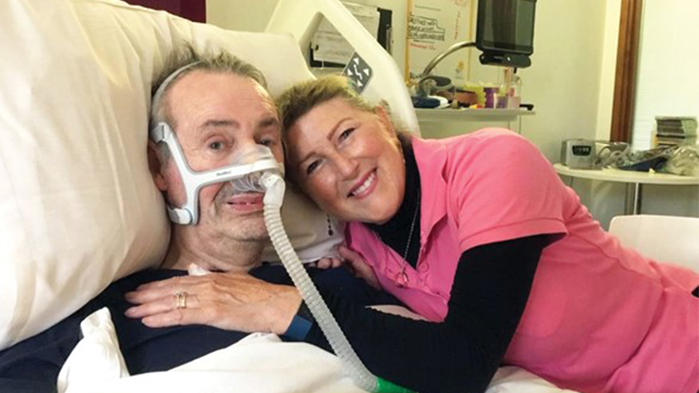
The early days
In the month after Alan died, I didn’t listen to music or the radio or watch television.
In the early days I was so numb I was not fully aware what people were saying to me. Some were uncomfortable around me and didn’t know what to say.
Some people spoke of losing their parents. I lost my dad when I was in my forties. It’s not at all the same.
As soon as Alan’s funeral was over, I rented a small holiday home in Devon and went into hibernation for a week. All through Alan’s illness I had kept a journal. In my holiday hideaway I began what would be a three-year project to create a book he had agreed I should write.
What helped me?
Daily journaling helped me off load during Alan’s illness. Turning my notes into a book helped me navigate my way through grief. I was also lucky enough to have bereavement support from Marie Curie counsellors and the charity Cruse.
I carried on writing in my journal after Alan died, but in the form of letters to him. To help me deal with his ‘absence’ I convinced myself he had gone overseas to work in a place with no phone or internet access. My letters to him were therefore vital.
In an odd way, losing Alan has given me gifts. I am more empathetic and less driven than I was. I try to appreciate the simpler things in life each day.What also helped was that some people gave me gifts. They meant the world to me. One friend gave me a tiny book called The Gift of Peace – Thoughts for a Peaceful World by Brahma Kumaris. Another gave me A Widow’s Journey by Gayle Roper
Recently I have read A Gift for Grief by Louise Bates.
Nowadays people who knew Alan before I did tell me things I didn’t know about him, which I enjoy learning.
Grief, love and loss
I still grieve. When my emotions bubble up, I get a physical pain, deep in my core – like a knife being twisted. Also, I feel it in my throat – like my airway is closing – then the tears come. It’s like a mini volcanic eruption. I sometimes feel lost – like I have been in an accident at sea, and I am all alone, clinging onto driftwood, waiting to find safety.
This whole experience has taught me that with great love comes great loss. I try to hold on to the fact I was deeply loved, and not dwell on the fact that the person who gave me that love is not in the room anymore. I have also learned, it’s ok not to be ok.
At various times I have allowed myself to scream and shout. At other times I have held back tears. I now feel it would have been better to have let them out.
Finding companionship
One of the most difficult things has been starting a new relationship. Alan wanted me to find someone new.
I have met a widower who has become a good companion, but I have not found it easy to love again.
And now
Where am I on my grief journey now? It’s four years since Alan died. There is no doubt I have been in depression for probably most of that time. Right now, I feel I am getting closer to accepting Alan has gone.
Finding my new tribe has been important. My circle of friends now includes widows. All of them have children, so I don’t always feel we are in the same place. I also now have new friends who did not know Alan. This helps because the only way conversations about Alan crop up is if I start them.
In an odd way, losing Alan has given me gifts. I am more empathetic and less driven than I was. I try to appreciate the simpler things in life each day.
The biggest gift is the passion I have now to tell my story so others can learn from my experience. My book Life’s Good: It’s the disease that’s the problem is my legacy. I published it on what would have been Alan’s 69th birthday, confirming 100% of sales proceeds would go to charity. I still think of Alan every day, but now I have a new purpose in life, and I feel energy returning to me. I might be a widow, but now I am an author too.
For more information about me and my book, visit here.
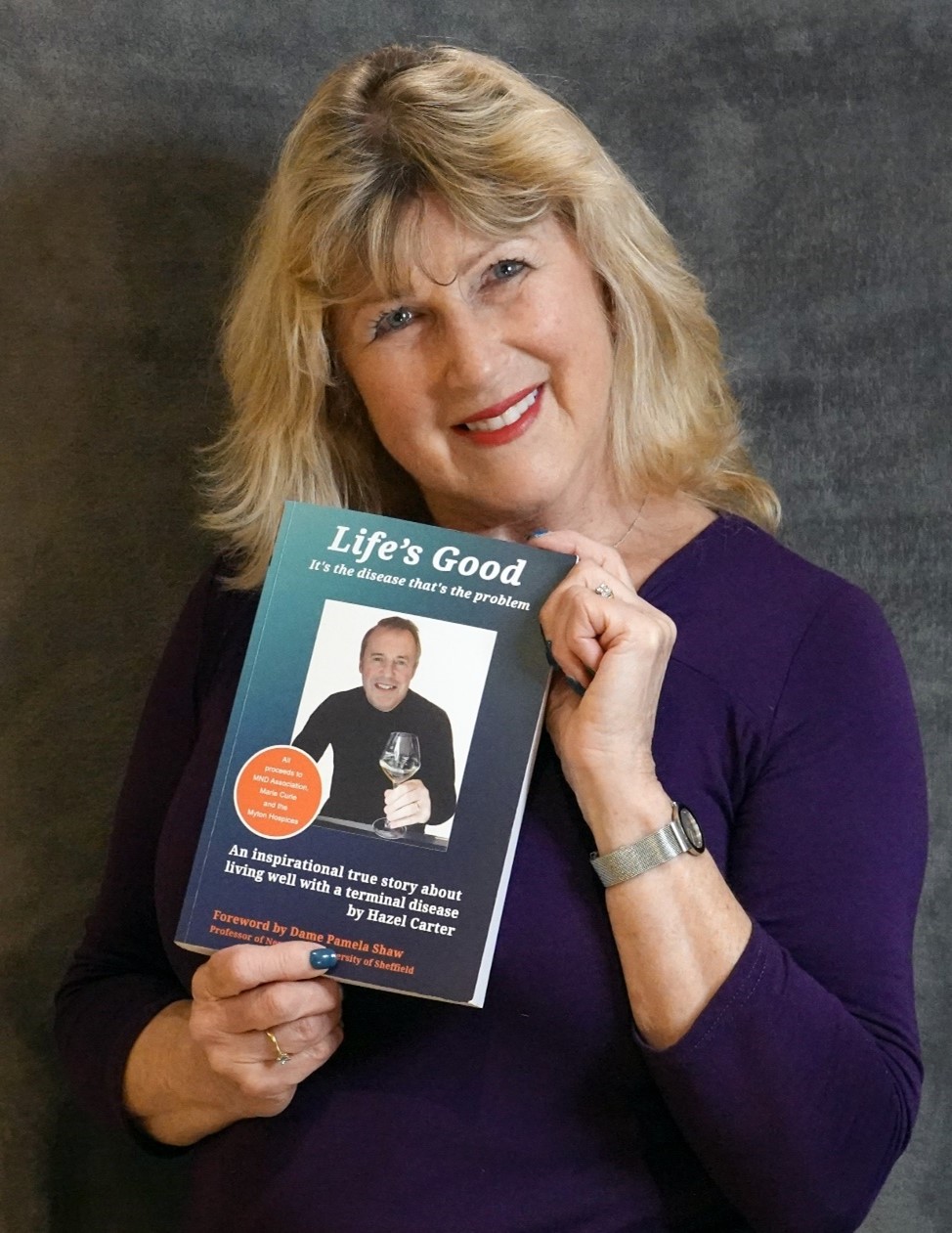
About grief: a reflection by an academic grief researcher
Many of you reading this may resonate with some, or all, of what Hazel has discussed in this article. You may be surrounded by the most loving and supportive people but there will still be times when you experience many emotions of grief including those mentioned such as despair, sadness, loneliness and anger and which can last for a long time. These are all normal feelings and are much talked about by many academic grief researchers who aim to understand how we experience grief, whether the death is sudden or expected or how the cause of death.
David Kessler, a well-known bereavement author, has written about the six stages of grief which you will find in the further resources section. In the book he recounts the challenges and insights that people have experienced through the death of someone important.
In conducting research working with people who have experienced grief, I have often listened to people as they search hard for meaning. What does this look like? It could be about making sense of the death. Sometimes it is gratitude for the time spent time with the person who has died, or reflecting about what life means for the survivor, and what they will do next. Grief though is extremely powerful, but it is unique to each individual and there are many ways in which you can access support.
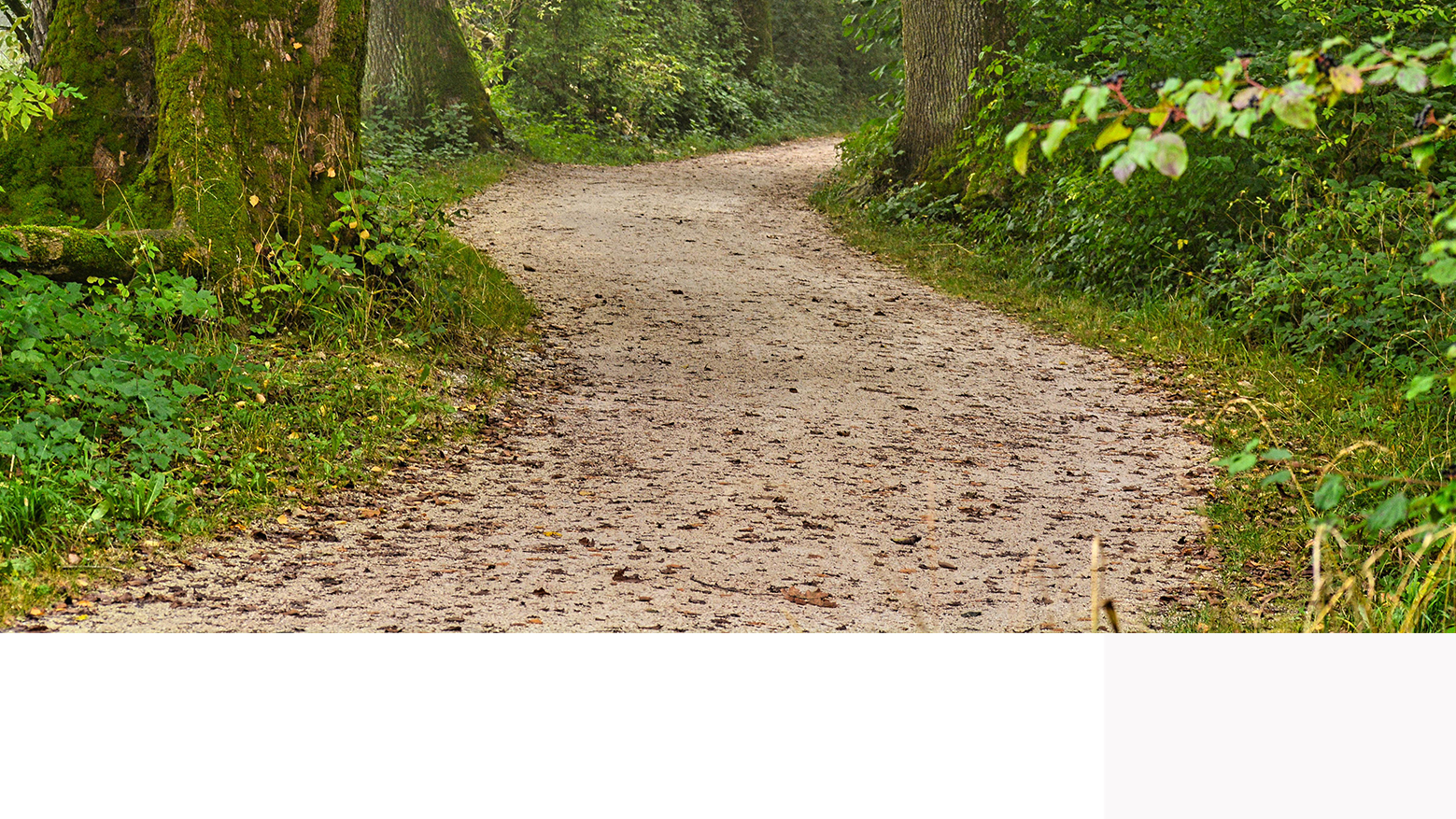

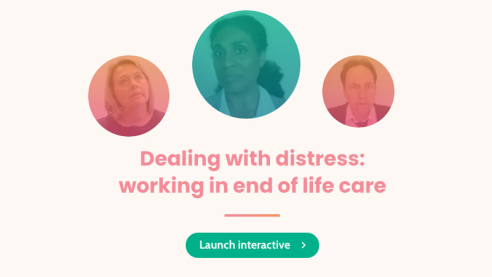





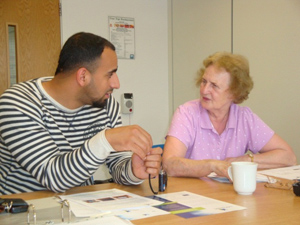

Rate and Review
Rate this article
Review this article
Log into OpenLearn to leave reviews and join in the conversation.
Article reviews